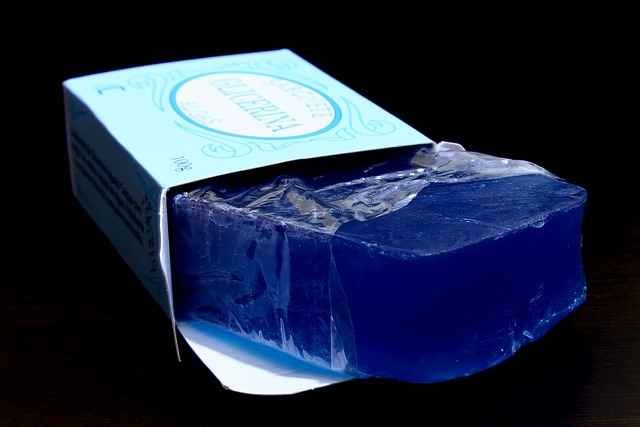If you’re a vegan, you’re likely concerned about the ingredients in your personal care and beauty products. One of the most common ingredients in these products is glycerin. But is glycerin vegan? In this article, we’ll explore what glycerin is, how it’s made, and whether or not it’s considered vegan.
Introduction
As a vegan, you want to ensure that the products you use align with your values. But with so many different ingredients in personal care and beauty products, it can be difficult to determine whether or not they’re vegan. In this article, we’ll focus specifically on glycerin and whether or not it’s a vegan-friendly ingredient.
What is Glycerin?
Glycerin, also known as glycerol, is a clear, odorless liquid that is commonly used in personal care and beauty products. It’s a humectant, which means it helps to draw moisture into the skin, making it a popular ingredient in moisturizers, lotions, and other skincare products. It’s also used as a sweetener in certain food products.
How is Glycerin Made?
Glycerin can be made through a variety of different methods. The most common method is through the hydrolysis of fats or oils, which involves breaking down the fats or oils using water. This produces a mixture of glycerin and fatty acids, which are then separated from each other.
Is Glycerin Vegan?
The answer to whether or not glycerin is vegan is not a simple one. Glycerin itself is a vegan ingredient, as it can be derived from vegetable sources such as coconut oil or soybeans. However, it can also be derived from animal sources such as tallow, which is a type of animal fat.
How it’s made and its properties
Vegetable glycerin, also known as glycerol or glycerine, is a clear, odorless, and sweet-tasting liquid that is derived from vegetable oils. It is commonly used in the food, pharmaceutical, and cosmetic industries as a humectant, emollient, and solvent.
The process of obtaining vegetable glycerin involves hydrolysis, a chemical reaction that breaks down triglycerides in the presence of water to produce glycerin and fatty acids. This reaction can be catalyzed using various methods, such as using enzymes or alkaline catalysts. The resulting glycerin is then purified and distilled to remove impurities and excess water.
Advantages over animal-derived glycerin
Vegetable glycerin has several advantages over animal-derived glycerin. Firstly, it is a plant-based product and is therefore vegan-friendly. Secondly, it is less likely to contain impurities, such as heavy metals, that can be present in animal-derived glycerin due to the use of animal feed and processing methods. Finally, vegetable glycerin has a more stable supply chain as it is not subject to fluctuations in animal populations or animal product demand.
Why is animal-derived glycerin not vegan?
Animal-derived glycerin is typically obtained from tallow, a byproduct of meat production that is rendered from beef or sheep fat. The tallow is heated to separate the glycerin from the fatty acids, and the resulting glycerin is then purified and distilled. This process raises ethical concerns as it involves the use of animal products and the exploitation of animals for commercial gain. For this reason, animal-derived glycerin is not considered vegan.
Types of Glycerin
There are three main types of glycerin: vegetable glycerin, animal-derived glycerin, and synthetic glycerin.
Vegetable Glycerin
Vegetable glycerin is derived from plant-based sources such as coconut oil, soybeans, or palm oil. It’s considered to be the most vegan-friendly form of glycerin.
Animal-Derived Glycerin
Animal-derived glycerin is made from animal fat, usually from cows or pigs. This form of glycerin is not vegan.
Synthetic Glycerin
Synthetic glycerin is made through a chemical process that does not involve any animal or plant-based sources. While it’s not derived from natural sources, it is considered to be vegan.
How to Identify Vegan Glycerin
If you’re looking to ensure that the glycerin in your personal care or beauty products is vegan, there are a few things to look out for. Look for products that specifically state that they contain vegetable glycerin, or look for products that are certified as vegan by a third-party organization.
Alternatives to Glycerin
If you’re not comfortable using glycerin in your personal care or beauty products, there are a few alternatives you can try. These include:
- Hyaluronic acid: A humectant that helps to draw moisture into the skin.
- Aloe vera: A plant-based ingredient that has moisturizing properties.
- Honey: A natural sweetener that has moisturizing properties.
Conclusion
In conclusion, glycerin is a common ingredient in personal care and beauty products, but whether or not it’s vegan depends on the source it’s derived from. While vegetable glycerin is considered to be vegan, animal-derived glycerin is not. If you’re looking to ensure that the products you use align with your values, look for products that specifically state that they contain vegetable glycerin or are certified as vegan by a third-party organization. And if you’re not comfortable using glycerin, there are alternative ingredients that can provide similar benefits.

